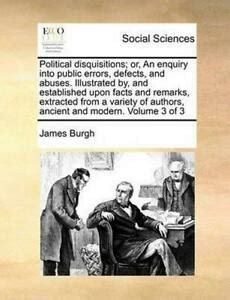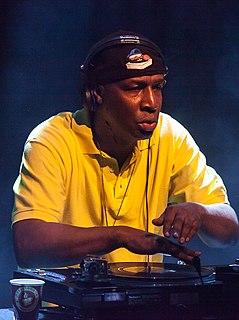A Quote by James Burgh
In disputes upon moral or scientific points, ever let your aim be to come at truth, not to conquer your opponent. So you never shall be at a loss in losing the argument, and gaining a new discovery.
Related Quotes
The routine of custom tends to deaden even scientific inquiry; it stands in the way of discovery and of the active scientific worker. For discovery and inquiry are synonymous as an occupation. Science is a pursuit, not a coming into possession of the immutable; new theories as points of view are more prized than discoveries that quantitatively increase the store on hand.
Learning how to access a continuity of common sense can be one of your most efficient accomplishments in this decade. Can you imagine "common sense" surpassing science and technology in the quest to unravel the human stress mess? In time, society will have a new measure for confirming truth. It's inside the people-not at the mercy of current scientific methodology. Let scientists facilitate discovery, but not invent your inner truth.
Nay! Alas for us all! And for all that walk in the world in these after-days. For such is the way of it: to find and lose, as it seems to those whose boat is on the running stream. But I count you blessed [...] for your loss you suffer of your own free will, and you might have chosen otherwise. But you have not forsaken your companions, and the least reward that you shall have is that the memory of Lothlórien shall remain ever clear and unstained in your heart, and shall neither fade nor grow stale.
Our moral reasoning is plagued by two illusions. The first illusion can be called the wag-the-dog illusion: We believe that our own moral judgment (the dog) is driven by our own moral reasoning (the tail). The second illusion can be called the wag-theother-dog's-tail illusion: In a moral argument, we expect the successful rebuttal of an opponent's arguments to change the opponent's mind. Such a belief is like thinking that forcing a dog's tail to wag by moving it with your hand will make the dog happy.
Although I know of no reference to Christ ever commenting on scientific work, I do know that He said, "Ye shall know the truth, and the truth shall make you free." Thus I am certain that, were He among us today, Christ would encourage scientific research as modern man's most noble striving to comprehend and admire His Father's handiwork. The universe as revealed through scientific inquiry is the living witness that God has indeed been at work.
So shall we come to look at the world with new eyes. It shall answer the endless inquiry of the intellect, — What is truth? and of the affections, — What is good? by yielding itself passive to the educated Will. ... Build, therefore, your own world. As fast as you conform your life to the pure idea in your mind, that will unfold its great proportions. A correspondent revolution in things will attend the influx of the spirit.
Losing ... really does say something about who you are. Among other things it measures are: do you blame others, or do you own the loss? Do you analyze your failure, or just complain about bad luck? If you're willing to examine failure, and to look not just at your outward physical performance, but your internal workings, too, losing can be valuable. How you behave in those moments can perhaps be more self-defining than winning could ever be. Sometimes losing shows you for who you really are.
Look sharply after your own thoughts. They come unlooked for, like a new bird seen on your trees, and, if you turn to your usual task, disappear; and you shall never find that perception again; never, I say-but perhaps years, ages, and I know not what events and worlds my lie between you and its return.
































